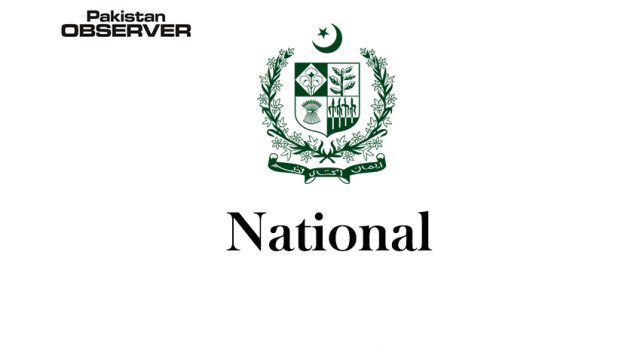Abdul Latif
THE world has experienced a new patient challenge in the shape of a virus named Corona-Virus (Covid-19).
It has been analyzed that this disease was initially introduced in China, more specifically Wuhan.
The outbreak of coronavirus has severely impacted the national and global economies.
Different levels of enterprises have different issues on various stages.
Particularly, enterprises are facing different difficulties such as a decrease in demand, supply chain disruptions, cancelation of export orders, raw material shortage and transportation interruption.
Major victims of the COVID-19 outbreaks are the micro, small and medium sized enterprises.
Government’s Achievements in Pakistan The Prime Minister Imran Khan highlighted the “achievements” of Pakistan Tehreek-i-Insaf (PTI) government during the year 2020 amid adverse impact of the Covid-19 pandemic on economy, health, education, development and social life of the citizens.
Prime Minister Imran Khan expressed satisfaction over what he said the outstanding recovery of plundered wealth by the National Accountability Bureau (NAB) and called it “a result of the government’s policy under which state institutions were working independently.”
The PM made public a brief sketch on steps taken by the government in different sectors starting from health, especially to combat coronavirus that has claimed over 10,000 lives in the country.
An official statement said in the health sector the first ever National Security Council (NSC) meeting on public health was held, National Command and Operation Centre formed to serve as a nerve centre, Rs1.2 trillion Covid relief package was announced and Rs180 billion were disbursed through Ehsaas Emergency Cash.
Besides other economic stimulus measures, the construction industry was given a package to ensure employment for daily wage workers.
On the welfare side, Ehsaas Kafaalat programme for seven million women and two million special persons, Ehsaas Amdan, Ehsaas Undergraduate Scholarships and Ehsaas Nashonuma programmes were also launched.
In the health sector, Sehat Sahulat Card (Rs1 million health coverage for every family to get treatment at both public and private hospitals) for entire Punjab (end of year 2021), KP, including the merged districts (end of Jan 2021), AJK and Gilgit-Baltistan and also for police, lawyers and transgenders were introduced.
Indigenous production of medical equipment, including ventilators and cardiac stents, was made while the Isolation Hospital and Infectious Treatment Centre (IHITC) was inaugurated in Islamabad, Medical, Surgical and Allied Services Block opened at Lady Reading Hospital Peshawar; ground breaking of DHQ hospital Hafizabad and DHQ hospital Chakwal was conducted and a 250-bed Peshawar Institute of Cardiology was inaugurated.
Protected Areas Initiative and Clean Green Index awards were also included among the projects.
Projects on development side included Naya Pakistan Housing for 20,000 housing units worth Rs100 billion, Allama Iqbal Industrial City Faisalabad, Bus Road Transport, Karachi Transformation Plan – Karachi Package,
The Government of Pakistan is especially hampered in its capacity to manage COVID-19 by the social, political and social setting of the country.
Obstruction made by local area elements, nearby/strict convictions, political shakiness, financial fragilities, and an absence of trust in government and establishments, has made Pakistan battle with undeniably less irresistible sicknesses like polio.
The battle against Ebola in Africa was exposed to comparable difficulties. Pakistan is currently confronting similar obstructions with Covid.
To counter this, mosques have been closed down in most Muslim countries including Saudi Arabia.
Be that as it may, Pakistani policymakers have not received such rigid measures inspired by a paranoid fear of a reaction from the strict wing. They have so far just controlled congregational supplications on Fridays.
It is regardless essential to investigate methods of working with strict associations and pioneers to impact results and conduct.
The government of Pakistan has disclosed a PKR 1.13 trillion ($6.76 billion) salvage and improvement bundle with a decent harmony between giving direct help to the defenseless and securing industry and organizations.
The assignment is sizeable however its actual effect must be evaluated by how it is carried out.
A portion of this will be subsidized by help from the World Bank and Asian Development Bank coming in throughout the following not many months.
Setting the correct establishment to launch the economy is imperative for the government.
The monetary upgrade bundle contains an entire scope of financial measures (tax cuts, monetary help by means of utilities, fuel and transport appropriations, concessions and assessment discounts) to secure exporters and businesspersons.
The public authority has additionally reported a different bundle worth PKR 100 billion ($600.42 million) only for SMEs, which structure near 90% of all endeavors in Pakistan and create 40% of non-agribusiness business.
Using Cash Payments to protect the poor in Pakistan A cash payment program will offer monetary help to more than 80 million individuals in Pakistan during the COVID emergency.










